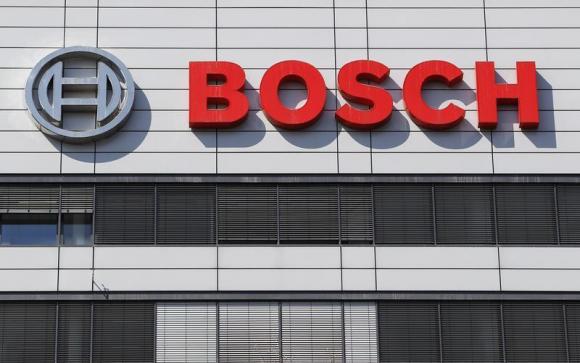German engineering-electronics giant Bosch has announced a plan to channel 160 million euros ($214.7 million) into Vietnam over the next three years.
The fresh money will be used to expand its existing production site for push-belts for continuously variable transmission (CVT) in automobiles and a recently opened automotive research and development (R&D) center in southern Vietnam, Peter Tyroller, member of the board of management for the Bosch Group overseeing Pacific Asia, said in a press release this month.
In late October 2013, Bosch obtained the license for an additional investment of $240 million for its Vietnamese business, Robert Bosch Vietnam Co Ltd, to set up a new plant in the southern province of Dong Nai.
The additional investment would be used to construct the plant that makes spare car parts and fund training programs for local workers, said Vo Quang Hue, managing director of Robert Bosch Vietnam.
Robert Bosch Vietnam on July 16 announced the establishment of an automotive research and development center in Ho Chi Minh City, the second R&D center of Bosch in Vietnam. The first one, specializing in software and engineering R&D, was set up in the southern city four years ago.
The automotive R&D center initially focuses on computer-aided design (CAD), simulations and testing of automotive technologies such as CVT and fuel injection, Hue said.
The new facility is located next to the software and engineering R&D center, offering smart solutions-embedded software, hardware, IT tools, mechanical design, business IT, and IT-enabled services at the E-Town tower in Tan Binh District.
The software and engineering R&D center has grown faster than Bosch initially planned by 18 months, Hue said, adding that the center, the first of such Bosch facility in Southeast Asia, reached the milestone of 500 associates in May 2014.
In April 2011, Robert Bosch Vietnam launched its automotive belt factory covering 160,000 square meters in Long Thanh Industrial Zone in Dong Nai.
The firm began the construction work on the factory, specializing in manufacturing push-belts for CVT for a variety of car models, in September 2008.
The bigger plan
Robert has also announced that it invested some 3.3 billion euros ($4.43 billion) in Pacific Asia in 2010-2014 to increase the localization contents of products to reach its 2020 target.
Accordingly, the Pacific Asian region continued to be the number one growth region for Bosch with sales doubling to some 11 billion euros ($14.76 million) over the past decade by the end of 2013.
The growth in the region has enabled Bosch to set higher growth rates for the next stage which will last until 2020.
“By 2020, we aim to double our sales in the region once again,” Tyroller said during a meeting at Bosch’s headquarters in July last year.
“Our investments in the coming years in Pacific Asia will remain at a high level and we will further intensify our localization efforts,” the board member added.
Bosch sees localization as the key success factor for the continuous growth in Pacific Asia, including local manufacturing, product management, engineering and a high share of local supply, the German firm said.
Strengthening regional footprints
Bosch considers that continuous investments will strengthen its regional footprint. Today, the company is present in 16 countries in Pacific Asia with 120 locations and 52 manufacturing facilities.
Earlier this year, Bosch inaugurated a new software research and technology center in India with a focus on the Internet of Things and Services (IoTS).
In Japan, the firm’s packaging technology division moved into a new location this April, facilitating the expansion of its global center of competence for pharmaceutical inspection technology.
Bosch will also further ramp up its automotive manufacturing capacity in China by opening two new sites for exhaust gas turbochargers in Shanghai and for clean diesel systems in Qingdao by the end of the year, both located on the country’s east coast.
In mid-June, the company’s first plant in Indonesia commenced production for automotive parts such as fuel injectors and oxygen sensors.
The recently opened automotive plant in Thailand for gasoline system-related products is scheduled to expand its portfolio to chassis systems products later this year.
In 2013, Bosch focused on expanding its manufacturing capacity for automotive components by creating a Pacific Asia-wide production and engineering hub for automotive aftermarket parts in China, where a plant and testing facility for driver assistance and safety products was also opened.
In South Korea, the plant for gasoline and diesel direct injection systems expanded its capacity, and a new plant for innovative automotive technology was inaugurated in India.
The company also invested in a new production facility for its drive and control technology division which manufactures hydraulics components and systems in South Korea.
In the fast growing Southeast Asian region, Bosch extended its footprint with additional offices in Thailand, Indonesia and the Philippines, and by opening a representative office in Myanmar.
Like us on Facebook or follow us on Twitter to get the latest news about Vietnam!


















































